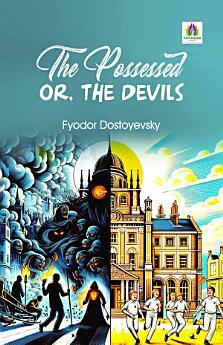The Possessed or, the Devils
About this ebook
The narrative revolves around the character of Nikolai Stavrogin, a brooding and enigmatic figure whose personal struggles reflect the broader societal conflicts of the time. Dostoyevsky weaves an intricate web of relationships and ideological clashes among a cast of vibrant characters, each embodying differing perspectives on politics, religion, and morality. Through their interactions, the author delves into the complexities of human behavior, examining themes of guilt, redemption, and the quest for meaning in a chaotic world.
One of the novel’s most striking elements is its portrayal of the seductive but destructive nature of radical ideas. As the characters become increasingly entangled in their revolutionary ambitions, Dostoyevsky raises questions about the morality of their actions and the consequences of their beliefs. The passionate rhetoric and philosophical debates serve as a backdrop against which the tragic events unfold, leading to shocking revelations and heart-wrenching outcomes.
With its rich character development and intricate plot, The Possessed offers readers a profound meditation on the clash of ideals and the human psyche’s darker aspects. Dostoyevsky’s masterful storytelling invites readers to reflect on the nature of evil, the complexity of radical thought, and the fragility of human conviction. The novel’s exploration of psychological turmoil and moral ambiguity remains as relevant today as it was during Dostoyevsky’s era, making it a timeless classic in literary history.
In this intriguing narrative, Dostoyevsky not only critiques the socio-political movements of his time but also provides a timeless commentary on the struggles of the human spirit. Through The Possessed, readers are challenged to confront their own beliefs and the implications of ideological fervor, ultimately provoking deeper questions about nature, faith, and what it means to be truly alive.







